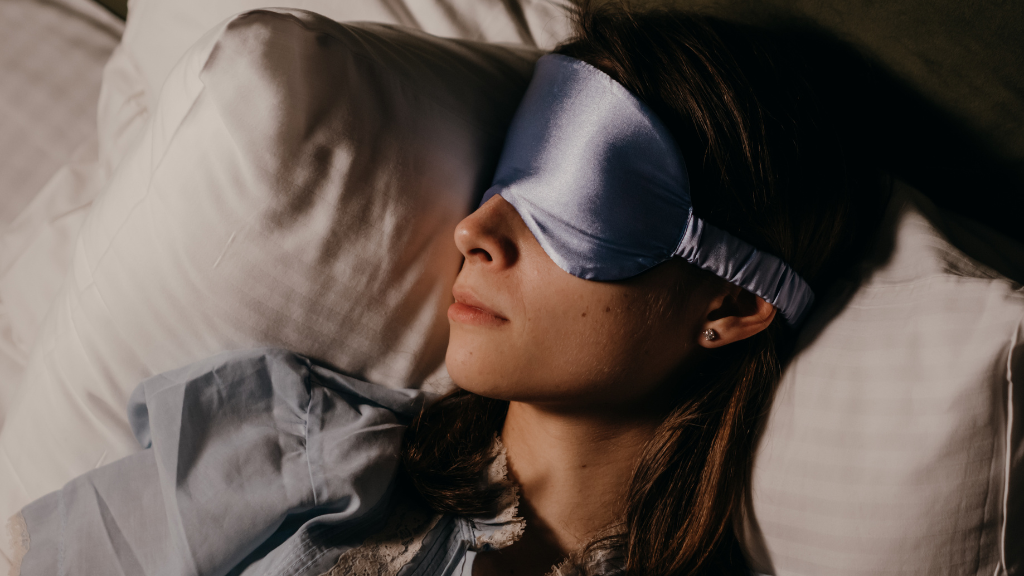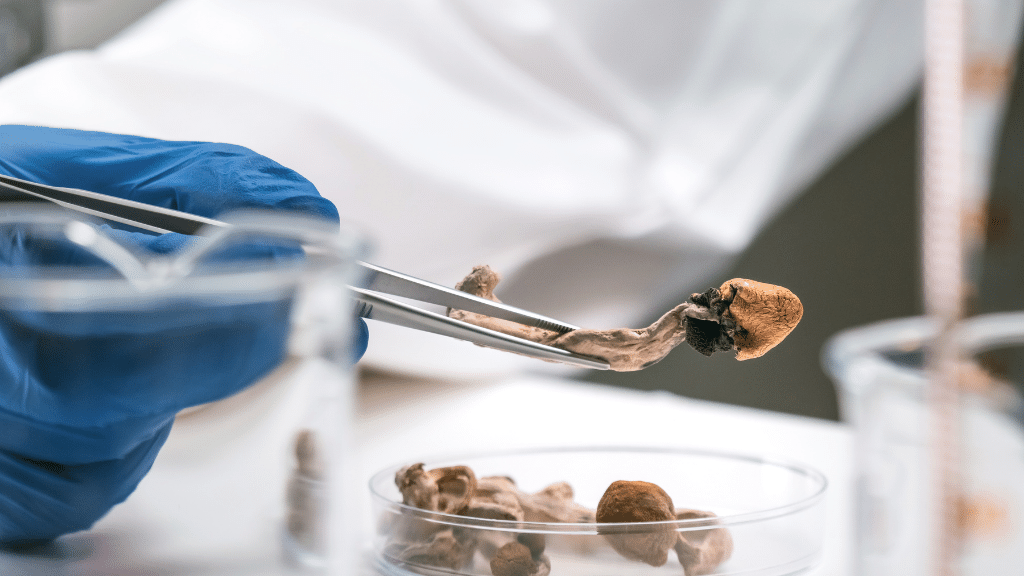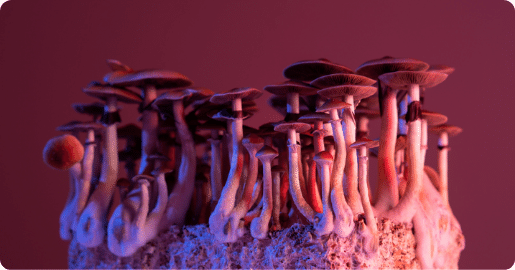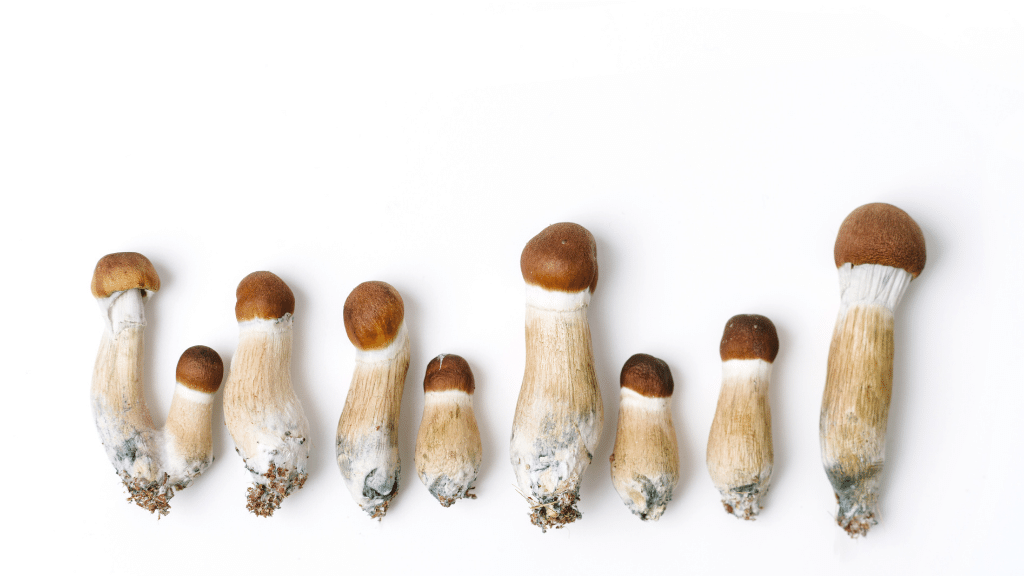It’s an interesting revelation that magic mushrooms and psilocybin (the hallucinogenic compound present in them), are currently classified as a schedule 1 drug, but have been used in a recent study to treat alcohol addiction.
Most would assume that psilocybin is an addictive substance and we’re just using one drug to treat another drug addiction. But in reality, psilocybin isn’t addictive and its therapeutic properties have shown success for the treatment of depression, anxiety, PTSD, and of course addiction (smoking and alcohol). There is cause for its continued use in a wide range of medical applications, and the newest study released on August 24th, 2022, only amplifies the progression for psilocybin therapy to become more mainstream.
And with 107 million people in the world estimated to have an alcohol use disorder, the need for treatment is imperative. Most reading this article either know someone who suffers from this, whether it be a friend, family member, or even themselves.
Psychedelics for alcohol abuse disorder study details
Conducted by JAMA Psychiatry, 93 participants who suffered from alcohol abuse disorder were evaluated. On average, they consumed 7 drinks per day on the days they drank. 48 were given psilocybin (43 received 2 sessions), while 45 were given diphenhydramine (placebo group). Both groups were also administered 12 weeks of psychotherapy. The schedule is below and followed with a 32 week period of study to gauge results.
|
Psilocybin Group |
Diphenhydramine group (placebo) |
|
|
Week 1 |
Psychotherapy |
Psychotherapy |
|
Week 2 |
Psychotherapy |
Psychotherapy |
|
Week 3 |
Psychotherapy |
Psychotherapy |
|
Week 4 |
25mg/70kg psilocybin + psychotherapy |
50mg diphenhydramine + psychotherapy |
|
Week 5 |
Psychotherapy |
Psychotherapy |
|
Week 6 |
Psychotherapy |
Psychotherapy |
|
Week 7 |
Psychotherapy |
Psychotherapy |
|
Week 8 |
25-40mg/70kg psilocybin + psychotherapy (43) |
50-100mg diphenhydramine + psychotherapy |
|
Week 9 |
Psychotherapy |
Psychotherapy |
|
Week 10 |
Psychotherapy |
Psychotherapy |
|
Week 11 |
Psychotherapy |
Psychotherapy |
|
Week 12 |
Psychotherapy |
Psychotherapy |
Michael Bogenschutz, director of the NYU Langone Center for Psychedelic Medicine, commented that the people that received two doses of psilocybin on weeks 4 and 8, accompanied by psychotherapy, “reduced their heavy drinking days by 83% over 8 months.”
The study further stated that, “percentage of heavy drinking days during the 32-week double-blind period was 9.7% for the psilocybin group and 23.6% for the diphenhydramine group.”
The average daily alcohol consumption was also lower in the group that received psilocybin treatment.
Now, for those who wonder about the safety of the study for those that were given a dose of psilocybin that makes them hallucinate or “trip”, the study stated that no severe, adverse side effects were experienced from the group given psilocybin. Interestingly enough, the only 3 severe adverse effects were from the group given the placebo, diphenhydramine.
The results are statistically significant when comparing the psilocybin group to the group given the placebo. One of the key importances to this study and the use of psilocybin is the psychotherapy that accompanies the treatment.
How does psilocybin therapy work for alcohol addition?
Psilocybin therapy is a form of cognitive and behavioral therapy along with traditional talk therapy which is conducted alongside the administration of psilocybin.

Typically, a patient is briefed, then administered a dose of psilocybin in a calm, comfortable, and quiet setting. In many cases, the patient is blindfolded and listens to soothing music. A highly trained professional guides the patient through the psychedelic experience, helping the patient navigate their experience and the emotions in brings up. Depending on the type of therapy, a session can last anywhere from 4-7 hours.
While more research needs to be done, psychedelics can help to create new neural pathways, allowing those who suffer from addiction to begin building new patterns under the supervision of their guide.
Following the treatment, traditional talk therapy helps the patient further evaluate their experience and solidify new pathways and patterns of thought.
Think of this just like a guided therapy session, where there are thought-provoking questions that steer the conversation between the therapist and the patient to then open the mind and dig deep into the underlying issue. In this case, alcohol abuse disorder.
Do they use real mushrooms in psilocybin therapy?
No, not in scientific studies. In most cases, the psychedelic compound psilocybin is extracted and synthesized so that it can be accurately measured, dosed, and studied. This helps to rule out possible differences in mushroom strains, potency, etc, which could skew results.

Psilocybin therapy has been gaining in popularity, with multiple companies utilizing this form of treatment to help patients with depression, anxiety, PTSD, and more. You can see what a psilocybin therapy session would look like here.
What are the limitations of the study?
One thing to note is that any trial with psilocybin vs a placebo is going to have a limitation. Why? Because one group is going to hallucinate/trip, while the other is not.
In fact, the study states that "Participants correctly guessed their treatment assignment in 93.6% of the first sessions, reporting a mean (SD) certainty of 88.5% (23.2%). In the second session, 94.7% guessed correctly, and mean (SD) certainty was 90.6% (21.5%). Study therapists correctly guessed treatment 92.4% of the time for first sessions and 97.4% for second sessions, and their mean (SD) certainties were 92.8% (16.3%) and 95.4% (2.9%), respectively."
We have to think that knowing whether you're receiving the drug or the placebo can affect the results. The study also lists this as a limitation noting that "Diphenhydramine was ineffective in maintaining the blind after drug administration, so biased expectancies could have influenced results."
The History of Using Psilocybin for Alcohol Addiction
This isn’t the first time that psilocybin has been administered to help treat addiction. It has been studied for its effectiveness of smoking addiction, and there was a small study on alcohol addiction which was performed in 2015.
Learn more about using psychedelics to quit smoking here.
It was a proof of concept study by the same group, again led by Michael Bogenschutz. A similar structure was given, where after 4 weeks (before psilocybin treatment was administered), abstinence from alcohol did not change much, but afterwards, it increased greatly. A follow-up at 36 weeks said that gains in abstinence were “largely maintained”.
Of course, this was the foundation to expand the study and get more insight into the effects that psilocybin can have on a condition that affects a substantial amount of the population, where alcohol consumption continues to rise.
Psychedelics are also being studied for depression and PTSD among other mental health disorders.
Is alcohol addiction on the rise?
We often seem to write off alcohol, or give it a “free pass” because it’s prevalent in everyday life. And we’re no saints when it comes to drinking one too many or binge drinking during a wedding. Most of us have been there. But the issue arises due to the dependency on alcohol and inability for those to limit their intake. After all, alcohol is a depressant, but in the short term can have stimulant-like effects and makes you “feel good”.
In times of stress, especially like the last few years, people look for a way to cope with the pain or anxiety of daily life among other life events. A study done on national alcohol consumption in the United States stated that, “compared with February, drinks per month in April and November 2020 significantly increased by 36% and 38%, respectively.”
This amount is staggering, but it’s easy to justify.
“It was a tough year.”
“We couldn’t do anything else.”
“We were home more often.”
We all had excuses to drink more, and while these numbers may not have continued to grow at that rate, it brought alcohol abuse to the forefront of conditions that we need to find a treatment for. It is a growing concern and the primary cause of death every year.
This is why magic mushrooms and psilocybin have been presented as a promising solution. We expect more studies to build upon this research, and since the Biden administration expects regulators to approve psychedelic therapy in the next two years, more companies will begin to cement their authority in the industry.
However, there is a long road ahead for the industry as the drug is still illegal federally, with only a select few states/cities legalizing or decriminalizing the psilocybin.
To keep up to date with your state, visit our Psilocybin Legality Database and subscribe to stay informed!
If you have any questions, we’re just an email away at hello@remeday.com to help provide any education you’re looking for!





.png)
